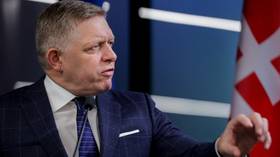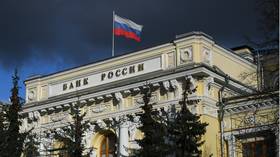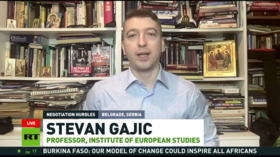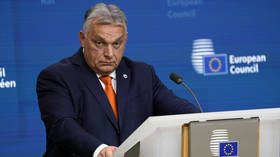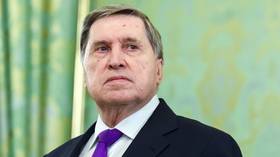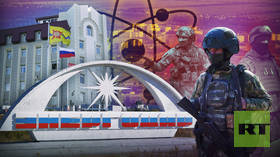EU states seek to protect Russian gas flow despite Ukrainian threat – Bloomberg
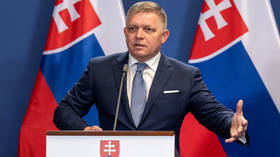
Countries in central and southern Europe are exploring solutions to ensure the continued flow of Russian natural gas, as a key transit agreement between Russia and Ukraine is set to expire on December 31, Bloomberg has reported, citing sources.
Kiev has refused to extend the agreement, citing ongoing tensions and unresolved disputes with Moscow.
Slovakia, Hungary, Austria and Italy are reportedly pursuing alternative strategies to avoid disruptions to their gas supplies. Among the options considered is a commercial agreement that bypasses the need for a renewed intergovernmental deal between Kiev and Moscow, Bloomberg wrote in a report on Saturday.
This could involve Slovakia and other Central European countries striking direct contracts with Russian energy giant Gazprom, ensuring uninterrupted gas flows despite Ukraine's objections.
Slovakia’s state gas utility, Slovenský Plynárenský Priemysel AS (SPP), is also in discussions with Azerbaijan’s state-owned oil company SOCAR. According to reports, one potential solution could involve a gas swap between SOCAR and Gazprom, where the Azeri company would purchase equivalent volumes of Russian gas to supply European buyers.
Azerbaijan’s gas exports already reach several EU countries through the Southern Gas Corridor, an infrastructure project designed to reduce dependence on Russian gas. The strategy was adopted by the EU following the escalation of the Ukraine conflict in 2022.
Hungarian Prime Minister Viktor Orban has also proposed moving the location of Russian gas sales to the physical border between Russia and Ukraine, which would transfer gas ownership to European buyers and oblige Kiev to ensure transit under its free-trade agreement with the EU, Bloomberg wrote, citing persons familiar with the matter.
Last week, Russian President Vladimir Putin acknowledged that various proposals have been discussed, involving Hungary, Slovakia, Türkiye, or Azerbaijan. He noted, however, that any such arrangement would be difficult to enact because of Gazprom’s long-term contracts.
Ukraine is punishing Europe by banning the transit of Russian gas, which will become more expensive, the Russian leader argued.
Moscow has also insisted that it’s ready to continue supplying natural gas to the EU.
Although only about 5% of the EU’s total gas supply now transits through Ukraine, the route remains vital for landlocked countries in Central and Eastern Europe. Since the start of the Ukraine conflict in 2022, the EU has sought to reduce its reliance on Russian gas, shifting toward alternatives such as liquefied natural gas (LNG) and increased imports from Azerbaijan via the Southern Gas Corridor.
Before February 2022, Russia was the bloc’s top gas supplier, accounting for more than 40% of its imports. Last year, Russian gas made up around 8% of EU imports.
